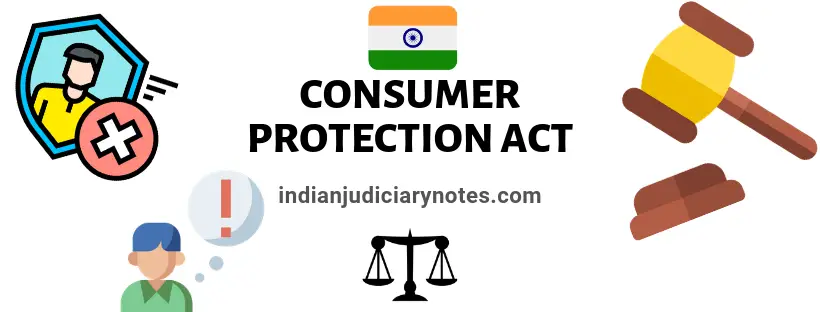Blog
(CPA) Consumer Protection Act

Consumer Protection Act, 1986 is an Act of the Parliament of India enacted in 1986 to protect the interests of consumers in India. It makes provision for the establishment of consumer councils and other authorities for the settlement of consumers’ disputes and for matters connected therewith also.
The Consumer Protection Act, 1986 was enacted to provide a simpler and quicker access to redress of consumer grievances. The Act seeks to promote and protects the interest of consumers against deficiencies and defects in goods or services. It also seeks to secure the rights of a consumer against unfair trade practices, which may be practised by manufacturers and traders.
The set-up of consumer forum is geared to provide relief to both parties and discourage long litigation. In a process called ‘informal adjudication’, forum officials mediate between the two parties and urge compromise.
Basic rights of consumers include
- Right to be protected against marketing of goods and services which are hazardous to life and property.
- Right to be informed about the quality, quantity, standard and price of goods or services so as to protect the consumer against unfair trade practices.
- Right to be assured, wherever possible, access to a variety of goods and services at competitive prices.
- Right to be heard and to be assured that consumers interests will receive due consideration at appropriate forums.
- Right to seek redressal against unfair trade practices.
- Right to consumer education.
Consumer redressal forum
Under the Consumer Protection Act, every district has at least one consumer redressal forum also called a consumer court. Here, consumers can get their grievances heard. Above the district, forums are the state commissions. At the top is the National Consumer Disputes Redressal Commission in New Delhi.
A written complaint to the company is taken as proof that the company has been informed. The complaint must be backed by copies of bills, prescriptions and other relevant documents, and should set a deadline for the company to respond. Consumers can also complain through a consumer organisation.
Claims of less than Rs. 5 lakh should be filed with district forum, claims of Rs. 5-Rs. 20 lakh directly with the state commission, and claims of more than Rs. 20 lakh with the National Commission.
To file the complaint
- Complaint is to be filed within two years of buying the product or using the service.
- Complaint needs to be in writing. Letters should be sent by registered post, hand-delivered, by email or fax. Don’t forget to take an acknowledgement.
- The complaint should mention the name and address of the person who is complaining and against whom the complaint is being filed. Copies of relevant documents must be enclosed.
- The consumer must mention details of the problem and the demand on the company for redressal. This could be a replacement of the product, removal of the defect, refund of money, or compensation for expenses incurred and for physical/mental torture. Please ensure that the claims are reasonable.
- You should preserve all bills, receipts and proof of correspondence related to the case. Avoid using voice mail or telephone because such interactions are normally difficult to prove.
- The complaint can be in any Indian language, but it is better to use English.
- There is no compulsion to hire a lawyer. The main cost consists of correspondence and travelling to the consumer forum for the hearing
- Maintain a complete record of the emails and documents sent by you.
Appeal
Appeal is a legal instrumentality whereby a person not satisfied with the findings of a court has an option to go to a higher court to present his case and seek justice. In the context of consumer forums:
- An appeal can be made with the state commission against the order of the district forum within 30 days of the order which is extendable for further 15 days. (Section 15)
- An appeal can be made to the National Commission against the order of the state commission within 30 days of the order or within such time as the National Commission allows. (Section 19)
- An appeal can be made to the Supreme Court against the order of the National Commission within 30 days of the order or within such time as the Supreme Court allows. (Section 23)
Penalties
The consumer courts (district court, the state commission and National Commission) are given vast powers to enforce their orders. If a defaulter does not appear in court despite notices and reminders, the court may decide the matter in his absence. The forum can sentence the defaulter to a maximum of three years’ imprisonment and impose a fine of Rs. 10,000. Forums can issue warrants to produce defaulters in court. They can use the police and revenue departments to enforce orders.
The rights of consumers need to be protected since they avail services given by the service providers based on trust and faith and thus it’s a necessity to keep a check on the service providers for the sake of service recipient.